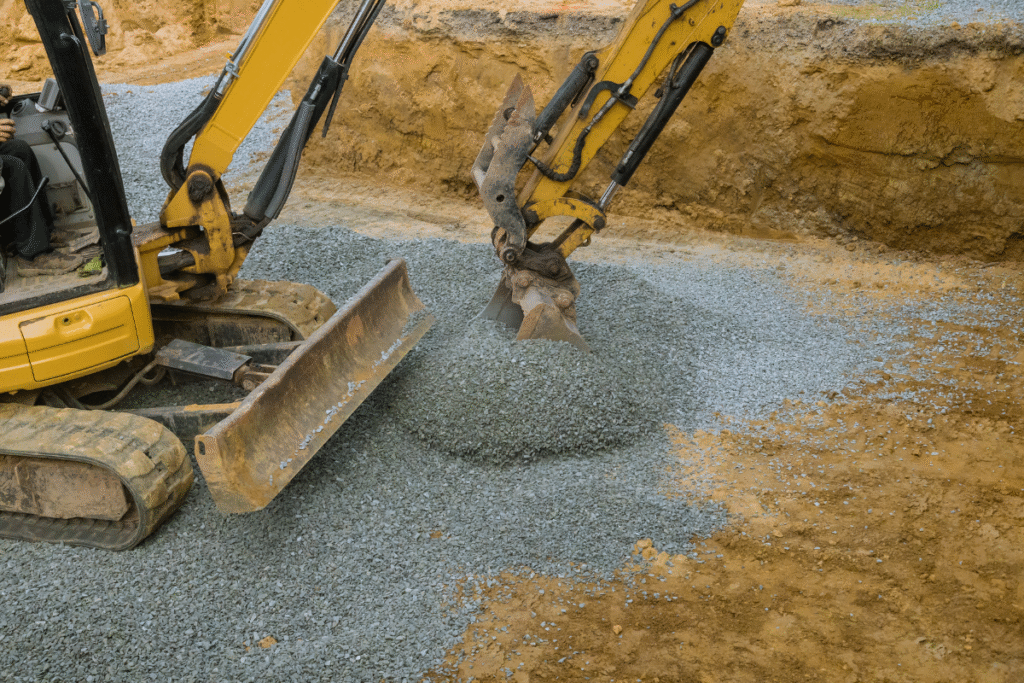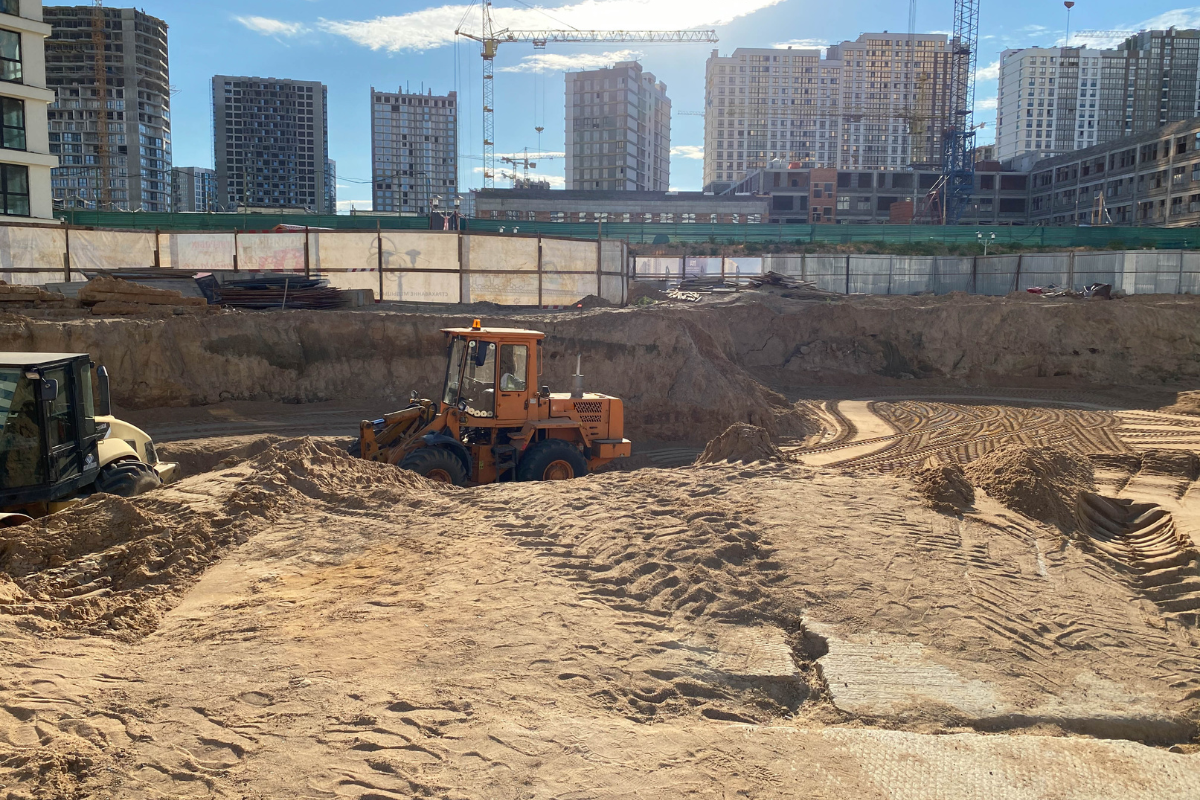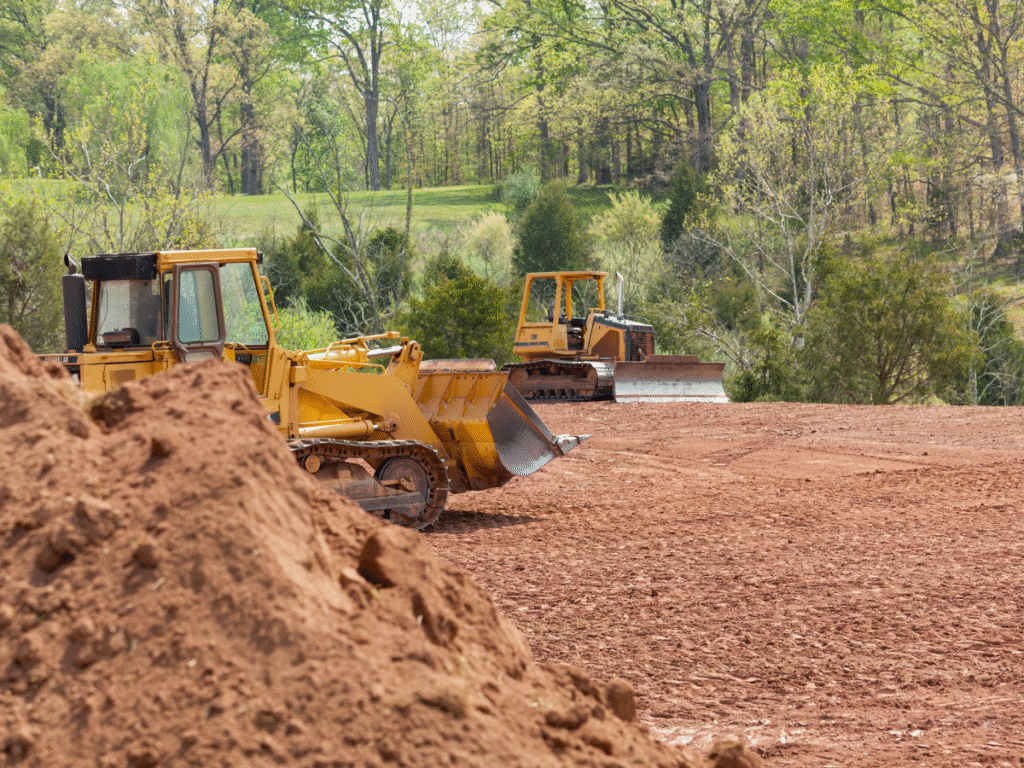Excavation for Building Foundations
Top-Quality Excavating Contractor - Premium Excavation for Building Foundations in Southeastern Michigan
When you're ready to start your construction project, the first crucial step is excavation for building foundations. At Superior Excavating, we specialize in preparing your site to ensure your building foundations are strong, stable, and ready for any structure you plan to build. Whether you’re working on a residential, commercial, or new development project, our team provides professional, reliable excavation services that ensure your foundation will stand the test of time.
What is Foundation Excavation?
Foundation excavation is the first step in any construction project where a foundation needs to be built. It involves digging and preparing the ground to create the base of your building. Proper excavation ensures that the foundation is solid, stable, and ready to support the weight and structure of your project. The process includes:
● Digging to the required depth based on the foundation design.
● Removing soil and debris.
● Installing drainage systems to prevent water-related issues like flooding or erosion.
● Ensuring the excavated area is leveled and stable for your foundation.
Why is Foundation Excavation Important?
Foundation excavation isn’t just about digging a hole; it's about laying the groundwork for the structural integrity of your entire building. Here’s why it’s so important:
● Stable Base: The foundation is the most important part of your construction project. A well-executed excavation ensures that your structure sits on a solid, stable foundation, preventing future issues like settling or cracking.
● Water Control: Drainage is essential in any excavation. Installing proper drainage systems will help prevent future water damage or flooding by controlling water flow around the foundation.
● Compliance: Foundation excavation must meet local regulations to ensure the excavation process is done safely and effectively. At Superior Excavating, we follow all local building codes to ensure your project passes inspection.

Key Steps in the Foundation Excavation Process
Site Preparation and Planning
Digging and Excavation
Checking for Underground Utilities
Drainage and Water Control
Final Inspections

Types of Foundation Excavation
Shallow Foundations
● Shallow foundations are typically used for smaller buildings and are placed closer to the surface of the soil.
● This type of excavation is less deep and relatively straightforward, often requiring slab-on-grade foundations.
Deep Foundations
● For taller buildings or areas with unstable soil, deep foundations are necessary.
● Deep foundations require a deeper excavation to reach solid ground and support the weight of the structure. Methods can include piles, caissons, or pilings, which extend deep into the earth for added support.
Full-Basement Excavation
● Excavating for a full basement requires a deeper excavation to create space below ground for living or storage areas.
● Proper support is essential, and excavation walls are reinforced to prevent soil collapse.
Why Choose Superior Excavating for Foundation Excavation?
Expert Excavation Team
Our team of skilled professionals uses the latest excavation techniques and equipment to ensure your foundation is prepared correctly.
Safety First
We prioritize safety measures throughout the excavation process, from handling underground utilities to ensuring the site is safe and secure for workers and the environment.
Attention to Detail
We don’t just dig; we carefully plan and execute every step to ensure your foundation is stable, properly leveled, and ready for construction.
Compliance with Local Codes
We ensure all work is done according to local building codes, so your foundation is up to code and will pass inspections without delay.

WHAT OUR CLIENTS ARE SAYING
These guys can get jobs done nobody else can!

Frequently Asked Questions (FAQs)
What is foundation excavation?
Foundation excavation is the process of digging and preparing the site to create a solid, stable base for a building foundation. It involves clearing debris, digging to the proper depth, and ensuring proper drainage to prevent water-related issues.
How deep does the excavation need to go?
The depth of the excavation depends on the type of foundation required, the soil type, and the design of the foundation. For a typical crawl space, the excavation may not be as deep as for a full basement or deep foundation.
What equipment is used for foundation excavation?
We use a variety of excavation equipment including excavators, loaders, bulldozers, and mini-excavators to handle different aspects of the excavation process efficiently and safely.
How long does foundation excavation take?
The time required for foundation excavation varies depending on the size of the project, the complexity of the excavation, and the type of foundation being installed. Smaller projects can take a few days, while larger ones may take longer.

